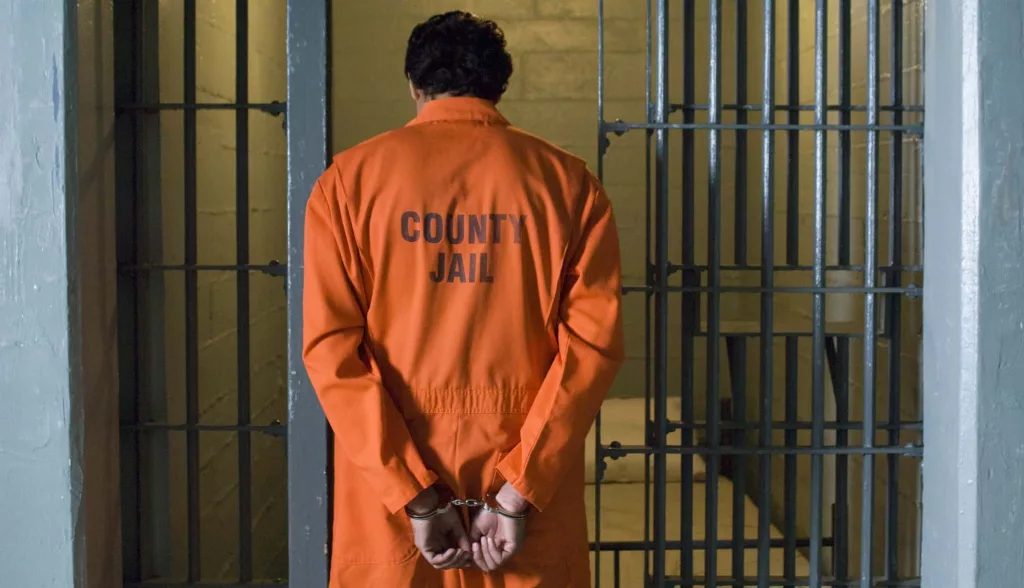A task force in Michigan has delivered a detailed report offering up 18 data-driven recommendations to the Speaker of the House and Majority Leader of the Senate designed to make the state a national leader in criminal justice reform.
The authors of the report say that their proposed recommendations “would enhance safety, protect rights, help victims, and make Michigan’s justice system more effective and efficient.”
The bipartisan Michigan Joint Task Force on Jail and Pretrial Incarceration has today delivered the groundbreaking report to the state Legislature. They say that the reform proposals balance twin goals of protecting victims and the public while safeguarding the rights of all people. The report details who is in Michigan’s jails and recommends steps to reduce jail populations and make communities safer.
Michigan Supreme Court Justice Bridget McCormack, who served as Co-Chair of the Task Force, says, “With the Task Force’s work, Michigan is on a path to reform that makes our state safer, stronger, and more effective in achieving equal justice for all,” and adds, “From start to finish, the diverse members of this Task Force inspired me with their shared commitment to find common ground and to deliver common sense solutions to make Michigan a national leader in safety and justice.”
Lt. Governor Garlin Gilchrist II, who was McCormack’s Co-Chair, says, “Now that we have clear data and information about the state of Michigan’s jail and pretrial system, we can begin to take a more thoughtful approach to ensure our policies meet the needs of all who come into contact with that system,” adding, “The policy recommendations that we have outlined will provide people with a much healthier chance of success here in Michigan, and I’m ready to work with the Legislature to codify them into law.”
House Speaker Lee Chatfield and Senate Majority Leader Mike Shirkey received the report and committed to giving the recommendations a thorough review and serious consideration.
Chatfield says, “Government exists in order to secure the constitutional rights of our citizens, and that is why reforming our criminal justice system to protect those rights from excesses is exactly the sort of work we should be making a priority in the state Capitol.” He points out, “We have made significant progress in reforming our criminal justice system in recent years, but there is much more we can do to protect the rights, freedoms and safety of every single Michigan resident. The House will review every one of these recommendations and begin work immediately to help protect the people of our state and give them the local and state government they deserve.”
Shirkey says, “I’m proud to say that this Task Force is made of a diverse group of stakeholders including Democrats and Republicans, law enforcement, victims, and former offenders,” and concludes, “Only certain issues of high importance and bipartisan consensus can bring all of these people together.”
Here are some of the key reform proposals included in today’s report:
- Reducing the number of driver’s license suspensions. In 2018, nearly 358,000 driver’s licenses were suspended in Michigan for failing to appear in court and failing to pay fines and fees. Testimony revealed that these suspensions take a heavy toll on families and employers while using up limited public safety resources. To address this challenge, the Task Force recommends that license suspensions or revocations be limited to driving violations related to public safety–they should not occur for failure to pay fines or fees. They also recommend that several traffic offenses like driving with a suspended license be reclassified as civil infractions rather than misdemeanors.
- Reducing arrests for failure to appear and low-level crimes. Task Force data revealed that while crime is at a 50-year low, Michigan jail populations have nearly tripled. Researchers also determined failing to appear in court is the most common reason for arrest, consuming substantial law enforcement resources that could otherwise be invested within communities. As a result, the Task Force recommends prohibiting arrest warrants for certain first-time failures to appear and developing innovative warrant resolution initiatives. It also recommends expanding officer discretion to issue appearance tickets in lieu of custodial arrests.
- Divert people with behavioral health needs away from the justice system. Jail admissions screenings in several counties estimated nearly one quarter of those entering jails had a serious mental illness. Substance abuse was also prevalent in a vast majority of the jail population. Recognizing the underlying cause of criminal activity is sometimes best treated outside the criminal justice system, the Task Force has made ambitious recommendations to deflect and divert certain individuals with behavioral health needs away from the justice system and into treatment. The recommendations also call for behavioral health crisis training for law enforcement, dispatch, and jail officers. Such training increases safety for both the individual and law enforcement while facilitating deflection.
- Establish higher thresholds for financial and non-financial pretrial release conditions. Nearly half of the 16,600 people in Michigan jails are pretrial detainees awaiting trial. In this regard, the Task Force heard expert testimony that when wealth is the deciding factor between pretrial release and detention, poor people may be denied the equal protection the U.S. Constitution requires. Pretrial incarceration also has negative effects on employment, housing, and families. Moreover, research has shown that imposing financial conditions for release are no more effective than release on recognizance for low risk defendants. To better safeguard the rights of defendants, the Task Force recommends creating a tiered statutory framework for pretrial release that presumes release on personal recognizance unless the court makes an individualized determination that the person poses a significant risk of not appearing, absconding, or causing bodily harm to another person.
- Enhancing protections and services for victims. The Task Force heard extensive testimony from crime survivors and victim advocates who noted support and resources for crime victims is lacking both during and after the criminal justice process. To address this need, the Task Force recommends significant new investments to expand domestic violence training for law enforcement and increased supportive services for victims, including counseling, shelter, and transitional housing. They also recommend developing steps to ensure the restitution process is transparent, efficient, and easy to navigate. Further, payment to victims must be more clearly prioritized over payment of other fines and fees.
The Task Force determined justice system costs are the third largest county expenditure after spending on health, welfare, and public works. In 2017, county-level spending for public safety and courts was more $2 billion, with nearly one quarter spent on county jail and corrections costs, not including the costs of new jail construction or improvements. By reducing jail admissions and increasing jail alternatives, the Task Force recommendations are designed to increase the efficiency of the justice system and allow public resources to be more effectively deployed to help victims and provide support and treatment for those with behavioral disorders.
Stephan Currie, Executive Director of the Michigan Association of Counties says, “The work of the Joint Task Force on Jail and Pretrial Incarceration is notable for both its outreach to county leaders directly involved in jail operations and for the data it has brought to public attention,” and adds, “Crime rates are dropping, yet jail populations remain high, which puts severe stress on limited county budgets. I know our members are eager to study the Task Force’s ideas for prudent measures to reduce jail stress while also ensuring public safety isn’t compromised.”
Meanwhile, Blaine Koops, Executive Director of the Michigan Sheriff’s Association says, “Decades of policies and practices have fed our incarceration problem, costing taxpayers billions of dollars and threatening rather than protecting public safety,” and concludes, “Many of the Task Force policy recommendations are what our law enforcement has been requesting for years–from diversion to sentencing. If our jail beds were used for a more targeted population, we could expand jail alternatives and actually reduce victimization by steering former offenders away from further criminal behavior.”
The report is the product of nine months of data collection, expert analysis, and discussion, including the input of more than 150 people who attended five public hearings to share their views and experiences with the criminal justice system. All of the hearings can be viewed on the Task Force website at this link: http://www.courts.mi.gov/micjreform
Appointed by Governor Gretchen Whitmer, the Task Force includes judges, state legislators, law enforcement, county officials and a wide range of other stakeholders, including both a victim of crime and a formerly incarcerated person. Data analysis and technical assistance has been provided to the Task Force by The Pew Charitable Trusts and will continue through September 2020 as the Legislature considers the reform plan.
David Guenthner, Senior Strategist for State Affairs at the Mackinac Center for Public Policy, has commented on the recommendations of the Michigan Joint Task Force on Jail and Pretrial Incarceration. Here’s his response:
“The task force recommendations follow a theme that has been key to the successful criminal justice reforms of the last decade and a half: we should lock up the people who we have reason to believe are a threat to public safety and develop alternative punishments for people who violated a law but are not a public safety risk.
When drivers’ licenses can be suspended for matters unrelated to traffic safety, more people wind up in jail. When every misdemeanor offense is eligible for arrest, more people wind up in jail. When law enforcement lacks proper training and local partnerships with behavioral health providers, more people wind up in jail. Jail is an essential resource to keep the public safe, but local taxpayers bear a heavy cost when it is used inappropriately or excessively.
The recommendations are comprehensive and discerning, and we stand ready to work with Gov. Gretchen Whitmer and our Michigan legislators to implement them.”






